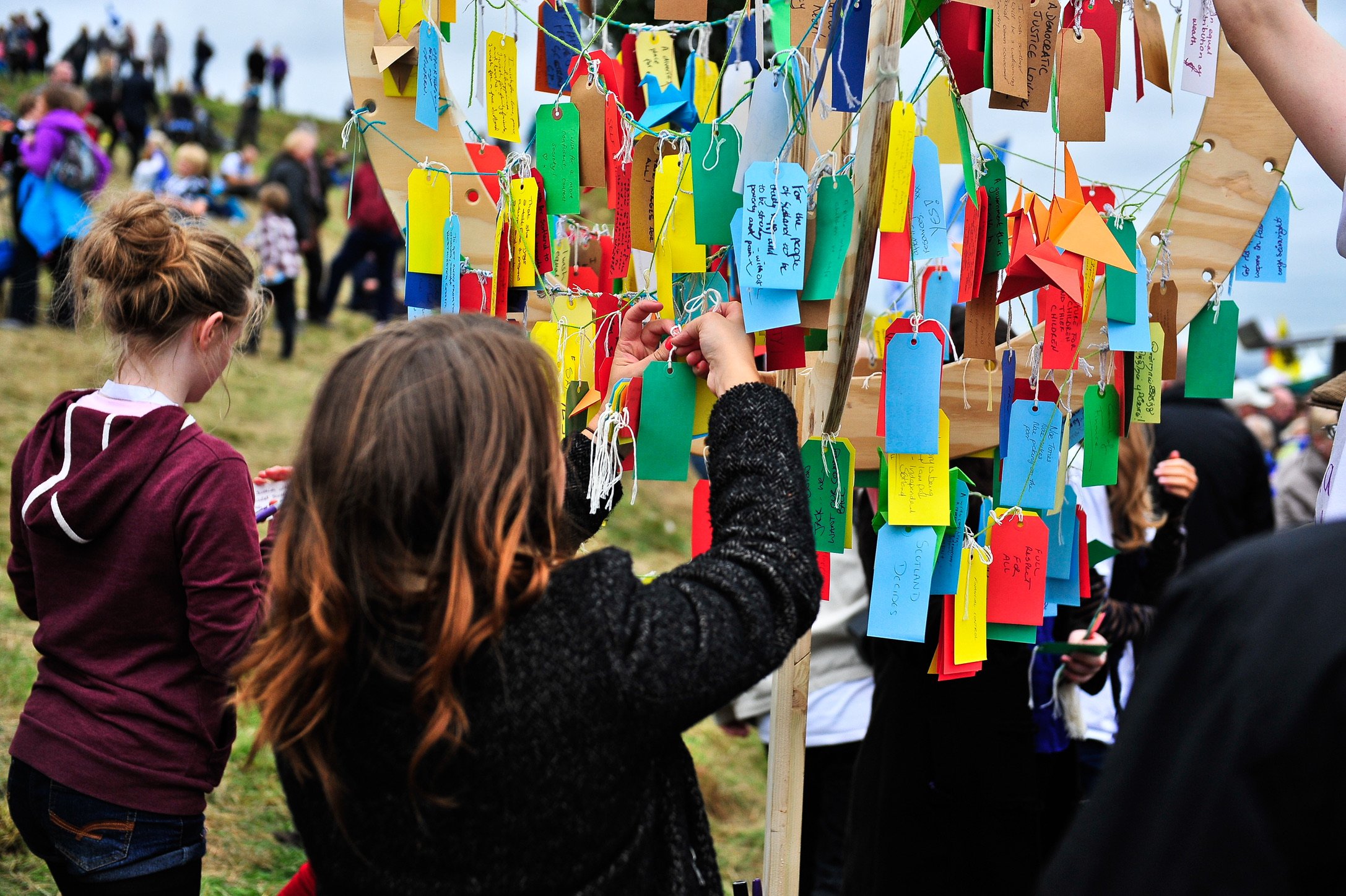Scottish politics is changing - fast.
Support for independence remains strong, but the political communications landscape we are operating in is very different from 2014.
Westminster feels more distant and more hostile. Labour and the Tories are now barely distinguishable on major issues. And the rise of Reform UK - with Nigel Farage back in the headlines and potentially on track to become Prime Minister - has turned what used to be a fringe threat into a real and dangerous possibility.
For a lot of people, that should be a wake-up call.
Farage in Number 10 would mean a race to the bottom - on immigration, on equality, on public services, and on Scotland’s right to decide its own future. But it could also push more people in Scotland to rethink where we’re heading, and whether this is really the kind of future we want to be tied to.
It also can’t be right that Scotland, a nation rich in energy resources - from North Sea oil and gas to world-leading wind and tidal power - faces some of the highest energy bills in the UK. We produce more electricity than we consume, yet our people are still paying the price while energy companies make record profits.
On top of that, Brexit - forced on Scotland against our will - has driven up living costs even further, disrupting supply chains, increasing food prices, and weakening the economy.
It’s a double hit: energy-rich but overcharged, and locked into a failing economic model we didn’t vote for. Scotland deserves better than this.
That gives the independence movement an opportunity - but only if we do things differently.
















I’ve seen firsthand what works. In 2014, I helped co-found and direct National Collective, a grassroots cultural movement made up of artists, writers, designers and musicians who believed that a better Scotland wasn’t just possible - it was already being imagined, created, and lived in by people across the country.
We didn’t need permission. We didn’t wait to be told what to do. We created posters, held exhibitions, ran gigs, and told stories that connected independence to everyday life. What made it work wasn’t funding or central coordination - it was people making things happen in their communities, on their own terms, and in their own voice. We even managed to ruffle the feathers of the world’s largest oil trading company and earn 2nd spot in the The List magazine’s “The Hot 100” while we were at it.
We are entering a new phase of political organising, one where traditional, top-down campaigning alone won’t be enough. The era of mass persuasion through the printed media and broadcast media is rapidly giving way to something more decentralised, more democratic, and ultimately more powerful: peer-to-peer conversations, content sharing, broadcasting and organising.
People trust family members, and friends more than anyone else. They trust folk who speak from the heart and talk about what matters to them. Especially now, when positive campaigning on social media is moving away from glossy, professionalised content and towards something more human.
The best performing political content now? It’s DIY. Filmed on phones. Casual, imperfect, authentic. Someone explaining in 30 seconds why they care about the NHS, or why they believe Scotland should be independent, or what the cost of living crisis is doing to their local area. That kind of content connects. Because it feels real.
This shift is an opportunity - especially for a movement like ours. Because we’ve got people in every town, every village, every scheme and suburb in Scotland. And they all have stories worth hearing.
That’s where we build from. Not just by running campaigns, but by building a culture of conversation. Encouraging people to share their stories, to talk to others, to feel confident being part of something bigger than themselves.
We’ve seen it already in recent campaigns. When supporters get involved directly - whether it’s sharing a post, writing a personal message, turning up at an event or simply knocking a few doors - they don’t just spread the message. They become the message.
To build a movement at scale, digital has a key role to play in supporting and strengthening everything we do. Digital content shouldn’t just be consumed - it should be designed to be easily shared, sparking wider reach and engagement. Events can be amplified online, helping conversations continue long after they end. And party membership can be made more meaningful by using digital tools to connect, involve, and empower people to contribute to something bigger.
That’s a powerful idea. And in a world where Farage could end up in government, and where Labour continue to ignore Scotland’s democratic wishes, we’re going to need every bit of that power.
Because here’s the truth: no one else is coming to save us. If we want change, we have to build it here in Scotland. And we build it the way we’ve always built movements in Scotland - peer to peer. Person to person. Story to story.
So don’t wait. Start now. Have a conversation. Share a post. Make a video. Ask a question. Listen to someone you disagree with. Tell your truth. Tell your story.
That’s how we win - not with fear, but with hope.
Not simply from the top down, but from the ground up.
In other words, Scotland’s future starts with you.
